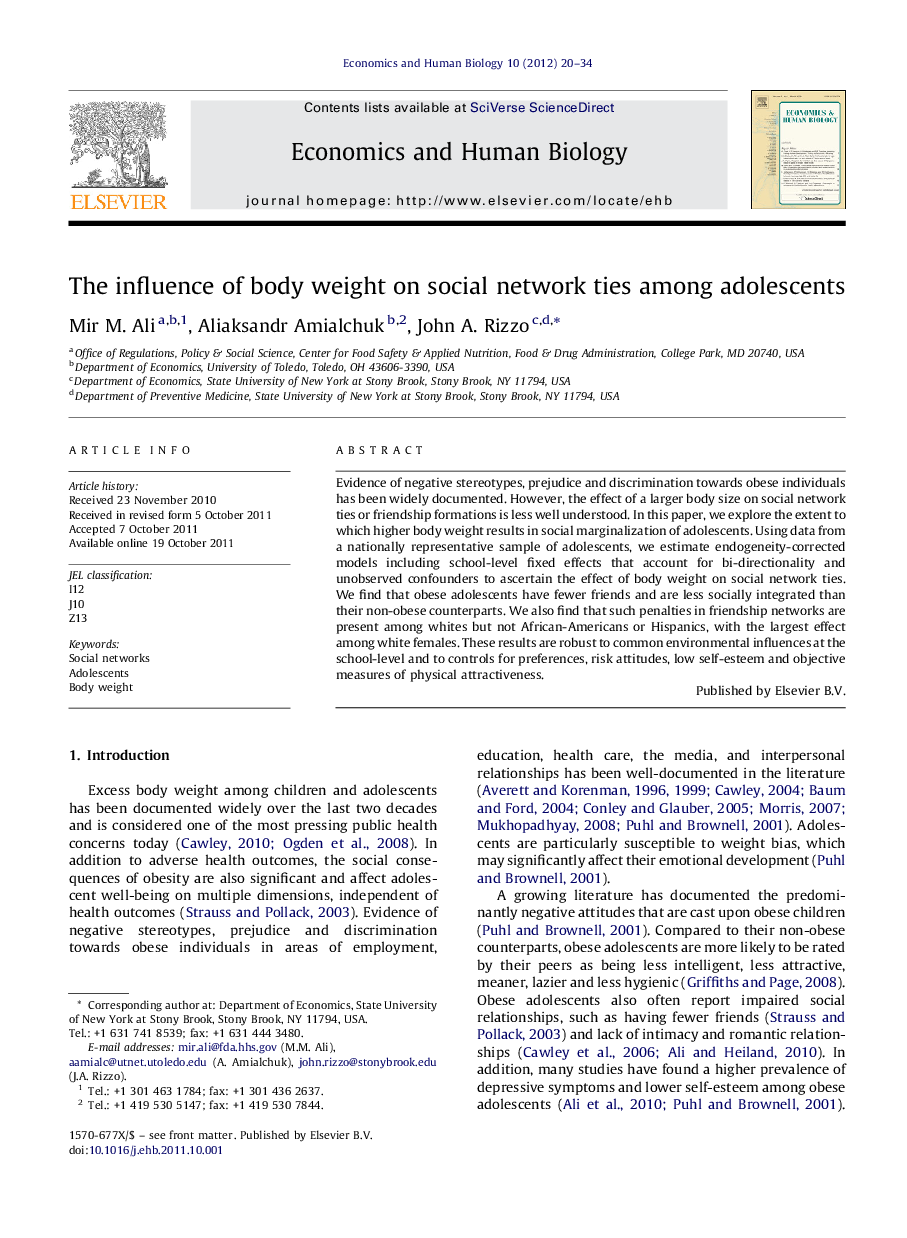| Article ID | Journal | Published Year | Pages | File Type |
|---|---|---|---|---|
| 5057182 | Economics & Human Biology | 2012 | 15 Pages |
Evidence of negative stereotypes, prejudice and discrimination towards obese individuals has been widely documented. However, the effect of a larger body size on social network ties or friendship formations is less well understood. In this paper, we explore the extent to which higher body weight results in social marginalization of adolescents. Using data from a nationally representative sample of adolescents, we estimate endogeneity-corrected models including school-level fixed effects that account for bi-directionality and unobserved confounders to ascertain the effect of body weight on social network ties. We find that obese adolescents have fewer friends and are less socially integrated than their non-obese counterparts. We also find that such penalties in friendship networks are present among whites but not African-Americans or Hispanics, with the largest effect among white females. These results are robust to common environmental influences at the school-level and to controls for preferences, risk attitudes, low self-esteem and objective measures of physical attractiveness.
► Being obese causes adolescents to be socially marginalized compared than their non-obese counterparts. ► Social marginalization due to body size appears to be more pronounced for non-Hispanic white females. ► Social marginalization due to higher body weight were absent among African-Americans or Hispanic adolescents.
